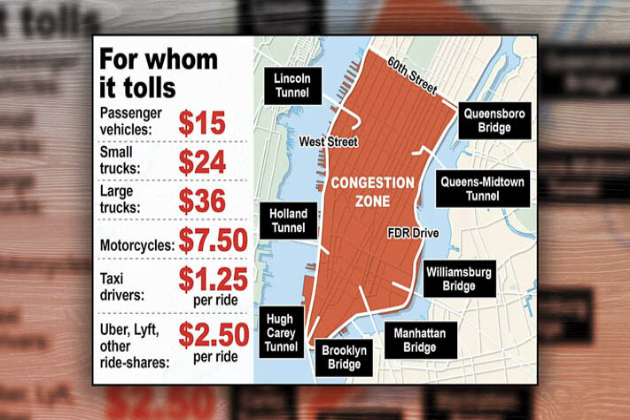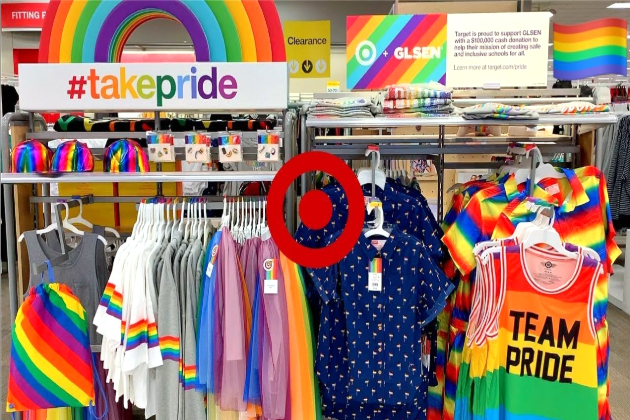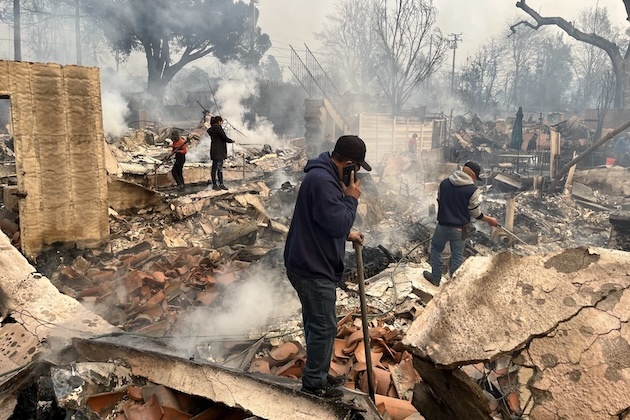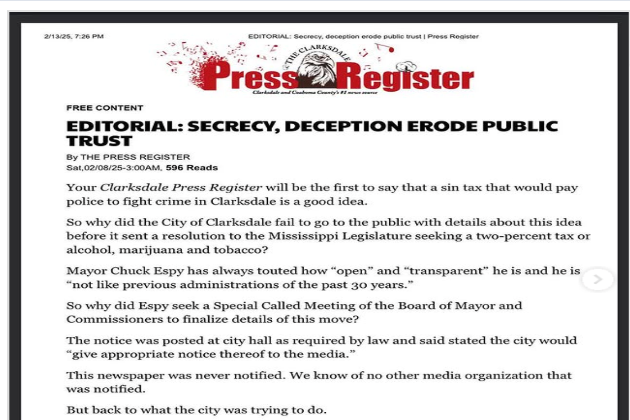Survey: Decline in number of US Christians is leveling off
Voice of America
27 Feb 2025, 09:00 GMT+10
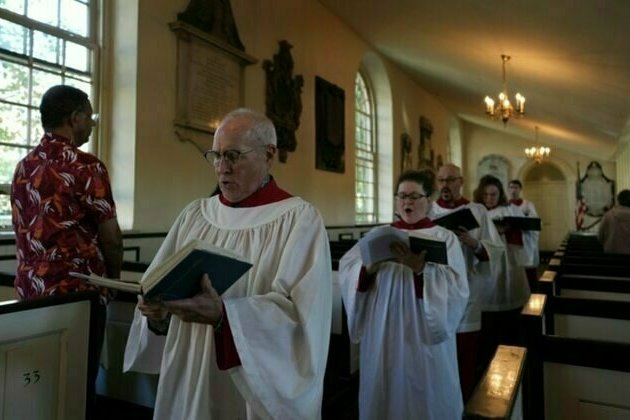
The number of Americans who identify as Christian has declined steadily for years, but that drop shows signs of slowing, according to a new survey Wednesday from the Pew Research Center.
The Religious Landscape Study finds 62% of U.S. adults call themselves Christians. While a significant dip from 2007, when 78% of Americans identified as Christian, Pew found the Christian share of the population has remained relatively stable since 2019.
The rapid rise of the religiously unaffiliated — the so-called "nones" — has also reached at least a temporary plateau, according to Pew. Approximately 29% of U.S. adults identify as religiously unaffiliated, including those who are atheist (5%), agnostic (6%) or "nothing in particular" (19%).
"It's striking to have observed this recent period of stability in American religion after that long period of decline," said Pew's Gregory Smith, one of the study's co-authors. "One thing we can't know for sure is whether these short-term signs of stabilization will prove to be a lasting change in the country's religious trajectory."
By some measures, the U.S. remains overwhelmingly spiritual. Many Americans have a supernatural outlook, with 83% believing in God or a universal spirit and 86% believing that people have a soul or spirit. About seven in 10 Americans believe in heaven, hell or both.
Young adults are less religious than their elders
Despite this widespread spirituality, there are harbingers of future religious decline. Most notably, Pew found a huge age gap, with 46% of the youngest American adults identifying as Christian, compared to 80% of the oldest adults. The youngest adults are also three times more likely than the oldest group to be religiously unaffiliated.
"These kinds of generational differences are a big part of what's driven the long-term declines in American religion," Smith said. "As older cohorts of highly religious, older people have passed away, they have been replaced by new cohorts of young adults who are less religious than their parents and grandparents."
Michele Margolis, a University of Pennsylvania political scientist not affiliated with the Pew survey, has studied how religious involvement changes over a lifetime.
Young adults frequently move away from religion. "Then when you get married and have kids, this is a time where scholars have noted that religion is more likely to become important," Margolis said.
Margolis said one question going forward is whether the youngest American adults firmly reject organized religion, or if some of them will return to the religious fold as they age.
Between 2007 and 2024, Pew religious landscape studies haven't indicated that Americans are growing more religious as they get older.
Smith at Pew said "something would need to change" to stop the long-term decline of American religion, whether that's adults becoming more religious with age or new generations becoming more religious than their parents.
How partisan politics intertwines with religious identity
The long-term decline of U.S. Christianity and rise of the "nones" has occurred across traditions, gender, race, ethnicity, education and region. But it is much more evident among political liberals, according to Pew. The survey shows 51% of liberals claim no religion, up 24 points from 2007. Only 37% of U.S. liberals identify as Christian, down from 62% in 2007.
Penny Edgell, a University of Minnesota sociologist and expert adviser for the Pew study, said this religious and political sorting aligns with whether people "support traditional, patriarchal gender and family arrangements."
Edgell also notes that Black Americans defy the assumption that all Democrats are less religious than Republicans.
"More Black Americans percentagewise are Democrats, but their rates of religious involvement are still really high," Edgell said. "That has something to do with the way that religious institutions and politics have been intertwined in historically unique ways for different groups."
Roughly seven in 10 Black Protestants told Pew that religion is very important to them — about the same rate as evangelicals and members of The Church of Jesus Christ of Latter-day Saints. But Black Protestants are likely to identify as Democrats (72%), whereas evangelicals and Latter-day Saints are likely to identify as Republican (70% and 73%, respectively).
The Pew survey tracks many religious traditions
It's been nearly 10 years since the last Religious Landscape Study, which tracks religious data that the U.S. census does not.
The new survey found that a majority of immigrants to the U.S. are Christian (58%), but they also follow the upward trend of the religiously unaffiliated, with a quarter of foreign-born U.S. adults claiming no religion.
The number of Americans who belong to religions besides Christianity has been increasing, though it's still a small portion of the population (7%). That includes the 2% who are Jewish, and the 1% each who are Muslim, Buddhist or Hindu.
Of U.S. Christian adults, 40% are Protestant and 19% are Catholic. The remaining 3% in Pew's survey include Latter-day Saints, Orthodox Christians, Jehovah's Witnesses and smaller Christian groups.
The two largest Protestant denominations in the Pew survey remain the Southern Baptist Convention and the United Methodist Church – though both have lost many members since the first Religious Landscape Study in 2007.
The Pew Religious Landscape Study was conducted in English and Spanish between July 2023 and March 2024, among a nationally representative sample of 36,908 respondents in all 50 states and the District of Columbia. The survey's margin of error for results based on the full sample is plus or minus 0.8 percentage points.
 Share
Share
 Tweet
Tweet
 Share
Share
 Flip
Flip
 Email
Email
Watch latest videos
Subscribe and Follow
Get a daily dose of Pittsburgh Star news through our daily email, its complimentary and keeps you fully up to date with world and business news as well.
News RELEASES
Publish news of your business, community or sports group, personnel appointments, major event and more by submitting a news release to Pittsburgh Star.
More InformationPennsylvania
SectionNY Governor defends Manhattan congestion toll in meeting with Trump
NEW YORK CITY, New York: Governor Kathy Hochul met with President Donald Trump in the Oval Office to defend Manhattan's congestion...
Florida claims Target ‘misled investors’ with its DEI initiatives
TALLAHASSEE, Florida: Florida's new attorney general, James Uthmeier, filed a federal lawsuit against Target this week, claiming the...
Survey: Decline in number of US Christians is leveling off
WASHINGTON — The number of Americans who identify as Christian has declined steadily for years, but that drop shows signs of slowing,...
Jalen Brunson, Knicks send 76ers to ninth straight loss
(Photo credit: Brad Penner-Imagn Images) Jalen Brunson scored nine unanswered points late in the fourth quarter Wednesday night for...
Spring training roundup: Tigers' Tarik Skubal sharp in debut
(Photo credit: Junfu Han / USA TODAY NETWORK via Imagn Images) Coming off his American League Cy Young Award season, Tigers ace Tarik...
Flyers chasing third February win against Penguins
(Photo credit: Eric Hartline-Imagn Images) The Philadelphia Flyers continue to surge, most recently at the expense of the reeling...
International
SectionUS oil tariff may force foreign producers to pay $10 billion annually
WASHINGTON, D.C.: A proposed 10 percent U.S. tariff on oil imports could deal a US$10 billion annual blow to foreign producers, particularly...
Federal probe threatens $4 billion fund for California high-speed rail
LOS ANGELES, California: The Trump administration is once again challenging California's high-speed rail project, with federal transportation...
Republican Texas AG pushes stricter transgender policy in NCAA
LUBBOCK, Texas: The Republican attorney general of Texas, Ken Paxton, wants the NCAA to strengthen its transgender athlete policy by...
In defense of Californian lands, migrant workers dig in
When the Eaton Fire began on January 7, 2025, in Altadena, California, it blazed through residential neighborhoods, destroying thousands...
5 officers charged as police department in Alabama faces closure
HANCEVILLE, Alabama: A grand jury has recommended shutting down a small police department in Alabama due to widespread corruption after...
Mississippi judge tells newspaper to drop editorial criticizing mayor
CLARKSDALE, Mississippi: A judge in Mississippi has ordered a newspaper to take down an editorial that criticized the mayor and city...

